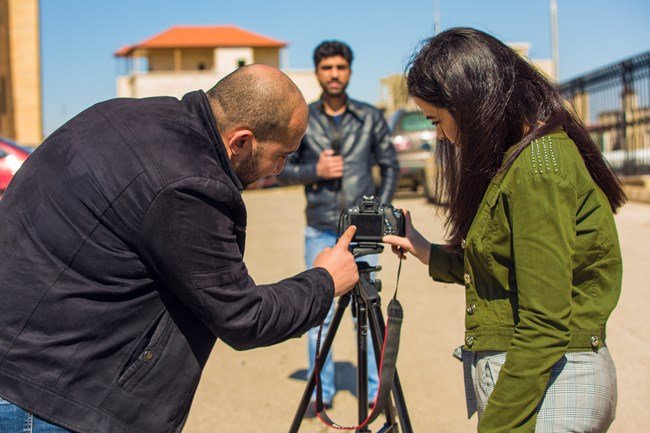Image:

18 Mar 2018
18 Mar. 2018 <br />
Amman - The Jordan Media Institute (JMI) has achieved an increase in the number of its training programs and participants in them in 2017 compared with 2016. The JMI organized 50 training programs, benefiting around 1,566 participants, in 2017, compared with 20 training programs, benefiting 379 participants, in 2016, according to the JMI's annual training and capacity building report.<br />
<br />
Dr. Basim Tweissi, dean of the JMI, said that the expansion in the training and capacity building programs internally and externally strengthened the status of the JMI as the largest Jordanian establishment that provides training programs in media and communication. The aim is to develop media professionalism and raise the capacities of the staff of various institutions in communication and media skills. He pointed out that most internal programs were offered by the JMI almost free of charge.<br />
<br />
The JMI's training programs were based on the needs of trainees and were part of projects with a number of partners. These include training courses on digital media skills (filming, editing, preparing multimedia reports, and writing reports). They also include capacity building courses on preparing press reports, skills of preparing TV field reports, media and information literacy, radio blogs, doing press reports by using smart phones, innovative journalism, using the tools of social and digital media in covering news, and others.<br />
<br />
The JMI also conducted a training diploma program on TV production over the course of three months. A training diploma certificate was given on the basis of this program for the first time. The program benefited 60 trainees, who are expected to be employed at Bahrain TV. There were 18 trainers involved in technical and editorial TV production. The subjects of the training included: Introduction to TV production, TV storytelling and reporting, TV production and direction, TV reports, sound and lighting, and TV documentaries.<br />
<br />
Besides Jordanian participants, a number of participants from other countries benefited from the programs. They came from Egypt, Tunisia, Algeria, Mauritania, Morocco, Bahrain, Lebanon, Syria, Iraq, Kurdistan, UAE, Yemen, Palestine, and Saudi Arabia.



